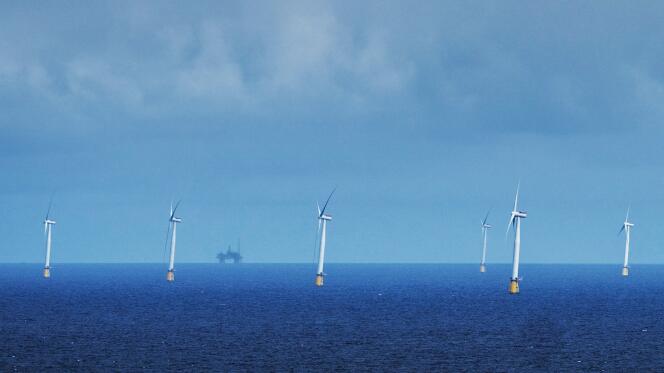


Teenage rebellion, the age of promise and disillusionment, also affects companies. The renewable energy sector has entered this thankless age. The Danish group Orsted is the world champion in offshore wind power. It has papered the North Sea with its increasingly gigantic windmills. But on Wednesday, August 30, this connoisseur of the Scottish coastline was dealt a major blow: It announced that it had to write down over €2.1 billion of assets in its accounts, which will have a major impact on its financial results. Immediately, the company's share price plummeted by a quarter. The explanations put forward by Orsted aptly sum up the reasons for the deep crisis in this sector, which is emerging from its infancy: production costs, interest rates and prices.
In the space of 10 years, the cost of offshore wind power has plummeted by 60%. With its gigantic blades and skyscraper-high masts, this electricity generation technique suddenly became competitive with gas, coal and nuclear power. But the return of inflation, particularly in steel and copper prices, and logistical problems brought this rise to a halt.
In a year, production costs have risen by 40%. In addition to this sudden increase, interest rates have risen sharply, which is a major handicap in such a capital-intensive business. Long-term feed-in tariffs offered by governments in exchange for investment continued to fall. This situation makes operators highly dependent on subsidies. Part of Orsted's disappointment stems from a reduction in the subsidy expected for the development of its field off the North American coast.
While analysts condemn Orsted's misjudgment, it is not the only company to scale back its ambitions. Its Swedish neighbor Vattenfall announced in July that it was halting its project off the English coast. Profitability was no longer there. This is bad news for governments, who will have to dig deep into their pockets if they are to meet the International Energy Agency's target of increasing global capacity 20-fold by 2050.
It's also a counter-model for the oil companies, which are being pushed to change their business and which are seeing Orsted – the Danish kingdom's former oil and gas company, successfully converted to wind power 10 years ago – weather its first major storm.
Translation of an original article published in French on lemonde.fr; the publisher may only be liable for the French version.
